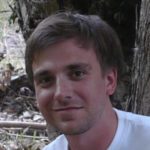Link to Pubmed [PMID] – 32439708
Link to DOI – 10.1073/pnas.1920596117
Proc. Natl. Acad. Sci. U.S.A. 2020 06; 117(23): 13056-13065
Plasmodium vivax, the most widely distributed human malaria parasite, causes severe clinical syndromes despite low peripheral blood parasitemia. This conundrum is further complicated as cytoadherence in the microvasculature is still a matter of investigations. Previous reports in Plasmodium knowlesi, another parasite species shown to infect humans, demonstrated that variant genes involved in cytoadherence were dependent on the spleen for their expression. Hence, using a global transcriptional analysis of parasites obtained from spleen-intact and splenectomized monkeys, we identified 67 P. vivax genes whose expression was spleen dependent. To determine their role in cytoadherence, two Plasmodium falciparum transgenic lines expressing two variant proteins pertaining to VIR and Pv-FAM-D multigene families were used. Cytoadherence assays demonstrated specific binding to human spleen but not lung fibroblasts of the transgenic line expressing the VIR14 protein. To gain more insights, we expressed five P. vivax spleen-dependent genes as recombinant proteins, including members of three different multigene families (VIR, Pv-FAM-A, Pv-FAM-D), one membrane transporter (SECY), and one hypothetical protein (HYP1), and determined their immunogenicity and association with clinical protection in a prospective study of 383 children in Papua New Guinea. Results demonstrated that spleen-dependent antigens are immunogenic in natural infections and that antibodies to HYP1 are associated with clinical protection. These results suggest that the spleen plays a major role in expression of parasite proteins involved in cytoadherence and can reveal antigens associated with clinical protection, thus prompting a paradigm shift in P. vivax biology toward deeper studies of the spleen during infections.
